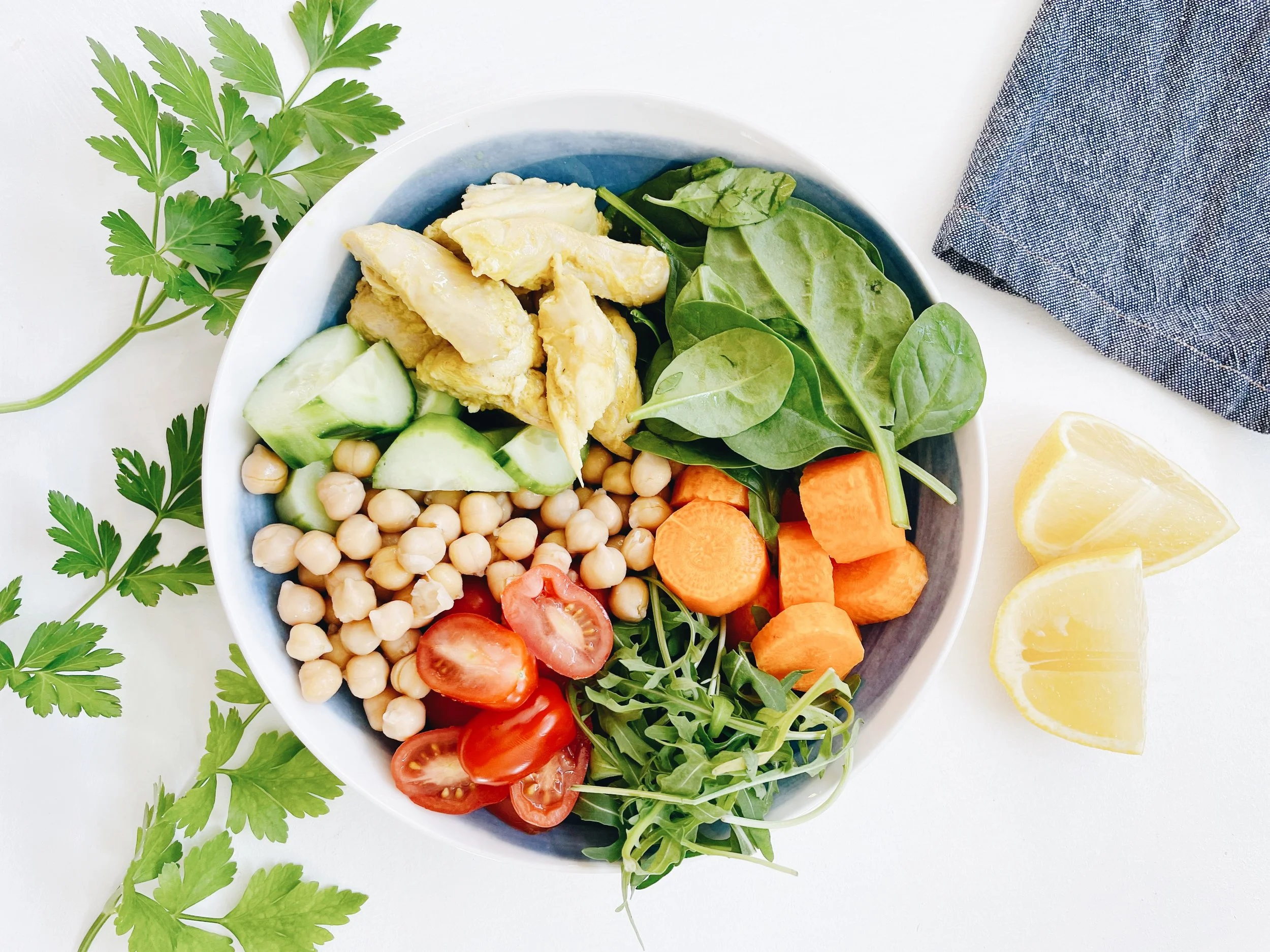Why Gut Microbiome Matters?
In the modern world gut health is the new "hot topic", and what on earth does it has to do with me, doesn't it only concern people with poor digestive symptoms. Well actually, no. Have you ever heard the saying "all disease begins in the gut"? New research has provided us with greater insight into the gut and its connection with health issues and disease. And the major key driver to a healthy gut is your gut microbiome, also known as gut flora, gut microbiota, or microflora.
Well, new technologies have provided us with greater insight into the gut and its connection with health issues and disease. Have you ever heard the saying "all disease begins in the gut" Also, is it possible then for healthy microflora to induce protection against chronic disease?
What is the gut microbiome?
Well, imagine in our gut we have a huge garden that needs to be taken care of, it requires sunlight, water, and soil for the flowers to bloom and trees to grow. Though instead of plants our gut has various types of bacteria (microbiota), "goodies" and "baddies", that are located all through the intestinal tract. Now the number and quality of good bacteria are determined by the type of soil, water, and sunlight, or in our case by food, water, and lifestyle. The food we choose to fill our diets with, will either contribute to building good or bad bacteria. Eating whole foods packed with vitamins and minerals will contribute to good bacteria and foods high in saturated and trans fats, refined sugars, and highly processed will increase the "baddies". People who absolutely pack their diet with whole foods, a lot of fruits and vegetables, have an increase in diversity of bacteria creating thousands of species of bacteria, and therefore these people will experience the maximum health benefits of a good gut, particularly stimulating their immune system and defense against diseases.
Benefits of a balanced microbiota
So by now you must be wondering what the gut microbiome is involved in, yes it most definitely affects digestion by breaking down the food, but it also has so many other roles. So here it is:
Stimulates immunity: Microbiomes perform defensive functions, preventing invasion or overgrowth of bacteria and pathogens.
Weight regulation: gut bacteria influence fat digestion and impact hunger hormones leptin and ghrelin to keep you at a healthy weight.
Limits digestive upset: when the gut microbiome is imbalanced people can experience diarrhea, abdominal cramps, and constipation.
Cardiovascular health: healthy gut microbiome protects heart health minimising chronic cardiovascular diseases.
Blood sugar balance: gut bacteria impact how the body responds to insulin digestion, minimising the risk of diabetes.
Improves cell health: promoting cell growth, replication, and differentiation
Regulates mood, and cognition and promotes relaxation: releases calming hormones including serotonin, oxytocin, and dopamine.
Contributors to the "baddies" or poor gut microbiome
Some of the following foods and lifestyle behaviours have shown to cause the elimination of healthy bacteria and disruption to the gut microbiome.
Antibiotics
Red meat
Eating late at night
Sugar + processed foods
Minimal sleep
Stress
To find out more on how to improve the balance of your gut microbiome and a suitable probiotic for you, leave a message in the enquiry box.
What foods promote diverse gut microbiota?
Probiotics have various strains and different probiotic foods contain different strains. Thus it is important to ensure a variety of probiotic and prebiotic foods in the diet to promote diversity of a healthy gut microbiome.
Probiotic Foods
Kefir: a potent source of probiotics containing up to 61 strains of bacteria and yeasts. Contains helpful yeast varieties
Yoghurt: fermented form of milk containing Bifidobacterium and lactic acid bacteria. Note, all yoghurts contains live bacterial cultures, though only some yoghurt ensures added probiotics.
Kombucha: the fermentation process produces a potent amount of bacteria including lactic acid bacteria which contains probiotic functions. Note, some commercial brands of kombucha contains artificial sugars which cause harmful effects on gut microbiome.
Miso: this fermented soybean is filled with probiotic strains, antioxidants and B vitamins.
Sauerkraut: unpasteurised sauerkraut ensures health bacteria are maintained. Kimchi have lots of immune-boosting vitamins to protect the body form infection.
Mozzarella cheese: some soft cheeses contain probiotics including Lactbacillus, Bifidobacterium and Pediococcus. Due to the nature of these cheese the probiotics are able to undergo difficult environments during digestion to journey through the stomach and intestines.
Prebiotic Foods
Garlic: contains potent antioxidant, anti-inflammatory and lipid-reducing qualities. As a prebiotic promotes the growth of bifidobacterial which protects the body from disease-promoting bacteria
Onions: rich in inulin and FOS. FOS promotes the breakdown of lipids and stimulating the immune system. Also contains antibiotic, anticancer and antioxidant qualities.
Leek: high in vitamins and minerals, also contains inulin promoting health gut bacteria and the breakdown of lipids.
Bananas: rich in vitamins, minerals and fiber. Unripe/green bananas are high in resistant starch promoting prebiotic effects.
Oats: whole oats contains beta-glucan which is shows evidence of promoting healthy gut bacteria, lower LDL (bad) cholesterol, stabilized blood sugar levels. Also promote prebiotic effects.
Cacao: rich in polyphenols such as flavanols which exhibit antioxidant and anti-inflammatory effects. Polyphenols also promote the growth of health gut bacteria, protecting the GIT from harmful bacteria.
However, it’s important to note that should you currently have digestive issues you need to be careful implementing probiotic and prebiotic foods as it cause additional disruption to your digestive system. The gut healing process needs to be managed very carefully, avoiding anything that may trigger inflammation and worsen GIT symptoms.
If you want more details on how to develop a diet and lifestyle that will contribute to a healthy and diverse microbiota feel free to contact me.
References
Hills, R. D., Jr, Pontefract, B. A., Mishcon, H. R., Black, C. A., Sutton, S. C., & Theberge, C. R. (2019). Gut microbiome: profound implications for diet and disease. Nutrients, 11(7), 1613. https://doi.org/10.3390/nu11071613

